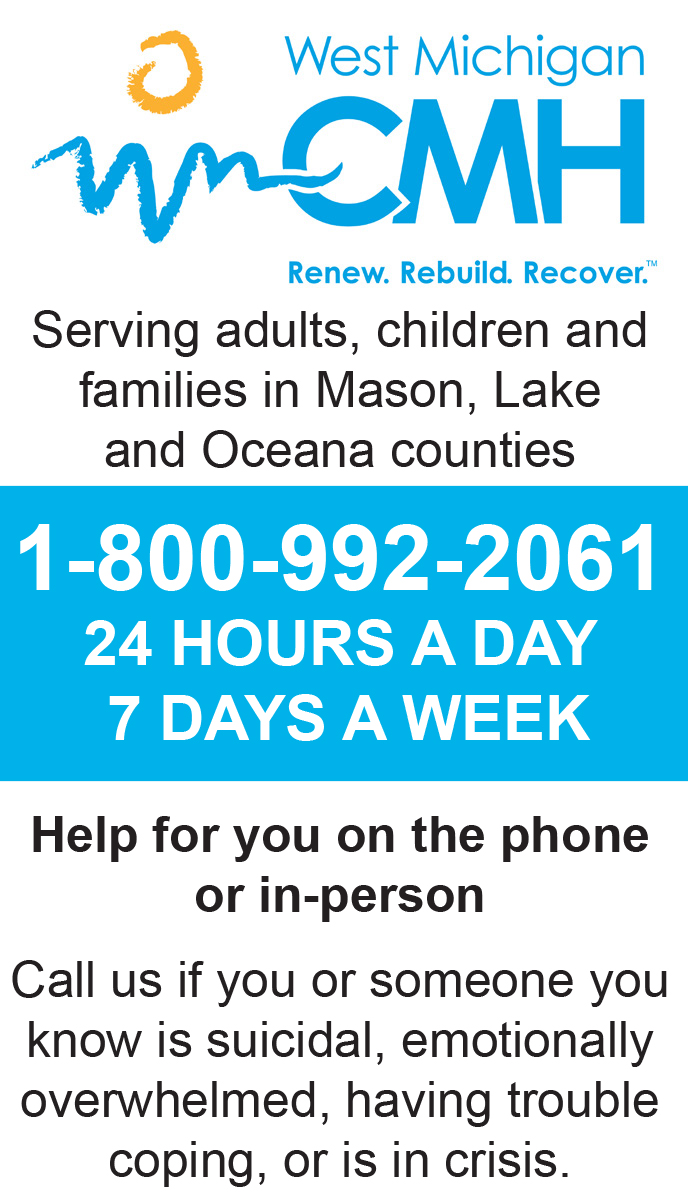 Mental Health Matters: April is Autism Awareness Month
Mental Health Matters: April is Autism Awareness Month
By Kristin Flanery and Megan Teall of West Michigan Community Mental Health
April showers bring May flowers. This is a phrase we are all familiar with. What you might not be as familiar with is that April is Autism Awareness Month. This month is a great opportunity for society as a whole to better understand those with an autism diagnosis. Learning what the diagnosis entails can help others know how to better include, support and interact with people in the community who may present with some of the characteristics. Awareness has grown over the years and has even come to be represented through avenues such as children’s television shows. Look at Sesame Street for example, which has included a character named Julia who has autism. It teaches others how some situations might be different for someone like Julia, such as loud sounds or new environments, and what we can do to make them feel more comfortable and included. Autism Awareness Month is designed to educate, spark inclusion and celebrate differences.
What is Autism?
Autism, better described as autism spectrum disorder (ASD), encompasses a wide range of abilities and challenges. This commonly includes notable challenges with social skills, speech and communication, and engagement in repetitive behaviors or fixed interest. Additional specific behaviors seen within the spectrum of ASD include delayed learning of language, lack of eye contact, challenges with reasoning, planning, and problem solving, narrow or intense interests in objects or activities, poor motor skills, sensory sensitivity, and at times the engagement in problematic behaviors. It can also often be accompanied by health issues such as sleep disorders, gastrointestinal disorders, or mental health challenges, such as anxiety or depression.
Autism does not have a single cause, but research shows it is influenced by both genetic and environmental factors. ASD looks different in everyone, as some people with ASD may be able to live independently with little support, and others may need significant support on a daily basis. Signs of autism typically appear by the age of two or three but can sometimes be detected as early as 18 months.
In recent years, we have seen an increased awareness for ASD which has led to earlier diagnosis and earlier intervention, as well as more available resources. This is displayed in the current statistics that one in every 54 children between the ages of one and eight have an ASD diagnosis. This prevalence has increased from the one in 125 children reported ten years ago. As this number increases due to advancements and awareness, we have found that the early diagnosis leads to early access to individualized services and supports (early intervention) which have shown to improve the individual’s life significantly. It gives children the best start possible and the best chance of reaching their full potential.
Early Intervention
Early intervention refers to those that occur at or below preschool age, as early as two or three years of age. At this age, their young brain is still forming and easily molded than older ages, leading to treatment being more effective long term. Early intervention focuses on the skills children usually learn in the first couple years of life including physical skills, thinking skills, communication skills, social skills, and emotional skills. One popular form of early intervention for autism is Applied Behavior Analysis (ABA).
What is Applied Behavior Analysis?
Applied behavior analysis, or ABA, is an evidence-based therapy that is used to improve behaviors such as social skills, communication, motor skills, grooming skills, and many others. What does evidence-based mean? It means that it uses research on how behavior is learned while looking at the relationship between a child’s behavior and their surroundings. Treatment consists of making small changes in the child’s environment to lead to change in their behavior. It incorporates a variety of ways to teach and improve necessary skills in order to make a positive impact on the child’s life.
ABA is a commonly used intervention for individuals with autism, as it teaches positive behavior and attempts to minimize negative behaviors. Each child works one-on-one with a Behavior Technician under the supervision of a Board Certified Behavior Analyst (BCBA). The BCBA also meets regularly with the family to provide training to encourage positive behaviors to occur in multiple environments. ABA is available for children from birth to age 21 who meet medical necessity criteria.
Local Resources
Autism services are currently being provided at West Michigan Community Mental Health, where services are developed around the individual and their current needs. Autism services are located in Lake, Mason, and Oceana counties and are center-based. By providing services in these centers, clients are able to work one-on-one with a technician in a controlled environment where they can be closely monitored by one of the Board Certified Behavior Analysts that WMCMH has on staff.
To obtain more information regarding autism services provided by West Michigan Community Mental Health, please call (231) 845-6294.




























 (1).gif)


















.png)









